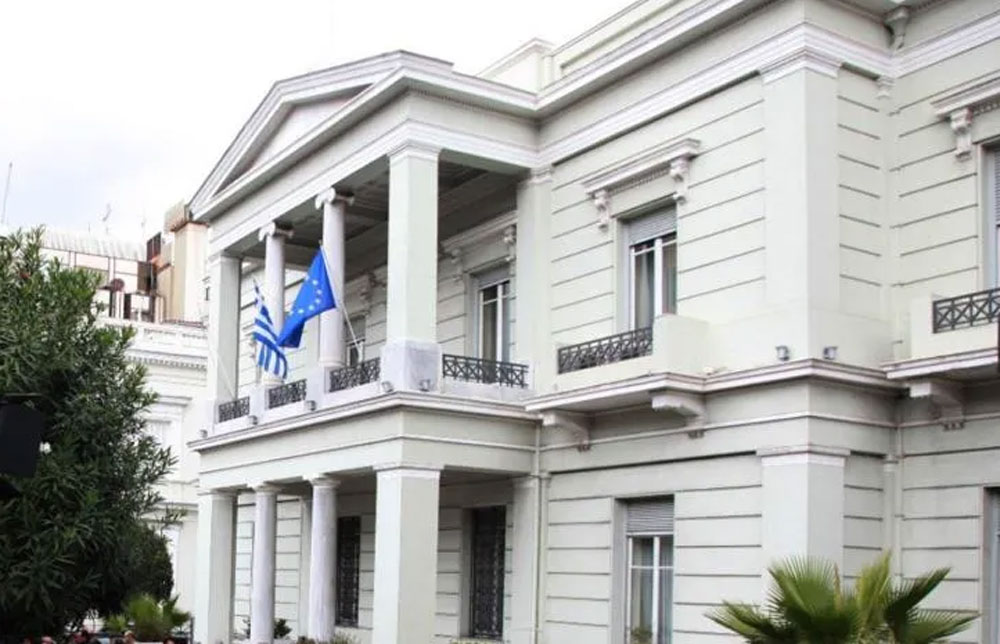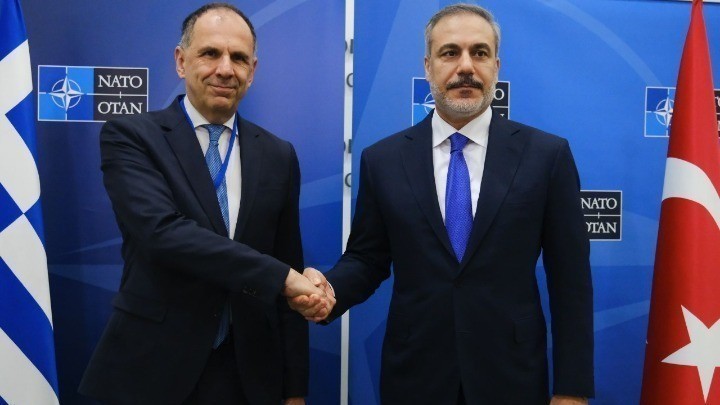
Greece, USA share a vision of Balkans integrating deeper into NATO-EU, American ambassador says
As a pillar of stability in the region and a commercial and cultural crossroads, as well as an emerging energy hub, Greece can play a strategic role for prosperity and security in the wider region, U.S. Ambassador in Athens Geoffrey Pyatt said on Friday. Addressing the 2018 Balkans and Black Sea Cooperation Forum in Athens, the ambassador also welcomed progress made in the negotiations with the Former Yugoslav Republic of Macedonia (FYROM) over its name.
“Greece and the United States share strongly a vision of deeper integration of the Western Balkans into European and EuroAtlantic institutions and in this regard we welcome and strongly support recent progress on the FYROM name issue, which holds the key to unlocking deeper economic and global ties between Greece and the Western Balkans,” Pyatt said.
He noted that Greece’s regional influence dates back millenia, to prehistoric times, with Greece using its geography and history to forge relationships and cultural impacts in a region that stretches from North Africa and the Mediterranean to Eastern Europe and Ukrainian Crimea.
The strong trilateral alliances between Greece, Cyprus and Egypt or Greece, Cyprus and Israel “have been in existence for millenia,” he pointed out, while Greece had recently used its influence as regional leader to bring together the Visegrad and Western Balkan neighbours at Sounion.
The ambassador also referred to the strong and deepening ties between Greece and the United States, in both security and in energy, while highlighting the interest of US investors in Greek firms and the opportunities arising as Greece goes into economic recovery.
“Greece is both a historical entrepot and a modern pillar of stability in this region. The US has long recognised this and our commitment to building a partnership with Greece in this regard remains unchanged, as Secretary of State Pompeo reiterated in his meeting last week in Washington with Foreign Minister Kotzias. In that meeting our two governments agreed to establish high-level strategic dialogue that will further enhance our cooperation on a full range of bilateral issues, including neighbourhood dialogue,” he said.
Pointing to the recent visits by US ships to Greek islands, Pyatt noted that the “ship visits are a reflection of the deepening defence relationship between our two countries and manifest our shared commitment to maintaining stability in the wider region.” He went on to highlight the significance of this defence relationship “and our joints efforts to maintain security and stability in the Aegean” for ensuring that Greece remains a safe and secure environment for investments and the tourism industry. “In this regard there is clear link between the geopolitics and the geoeconomics,” he added.
Pyatt spoke at length about the critical role of Greek ports and shipyards in efforts to build productivity, welcoming the start of work at the “strategically located Neorion shipyards in Syros, where the US company Onex is now finalising its investment.”
“This US investment is a clear demonstration of how American companies, together with Greek partners, and talented Greek human capital, are able to build economic opportunities,” he said, while noting strong interest by American companies in the privatisation of the port in Alexandroupolis, which he described as a “strategically significant piece of infrastructure.”
“Alexandroupoli is also an example of how Greece is emerging as a crossroads for energy security,” Pyatt added, referring to the city’s Floating Storage and Regasification Unit, and noting that the US and EU share a vision of Greece as a regional energy hub.
“We view Greece’s role in securing the diversity of energy sources as critical to ensuring a strong and free continent. Greece is a platform for a large number of energy projects that strengthen Europe’s energy security,” he said, listing the TAP pipeline, IGB Interconnector, Revythousa and the FSRU. The US has a strong interest in the privatisation of DESFA and the future privatisation of DEPA, Pyatt said, as well as a possible future investment in Hellenic Petroleum.
“Our shared interest in Europe’s energy security is why we oppose the development of Nord Stream II, the second pipe of Turkish Stream. Nord Stream 2 would concentrate two thirds of Russian gas imports to the eU through a single route, creating a choke point that would significantly increase Europe’s vulnerability to a supply disruption,” Pyatt said.
He concluded his address by referring to the Thessaloniki International Fair (TIF), where the US will be the honoured country, noting that it will “provide a compelling platform highlighting Thessaloniki and Greece’s strategic role in creating the linkages with Balkan countries.”
Source: AMNA

